Ninth Constitution Day: Madhes Province Chief Minister Singh proposes 5-8 ministries at centre, acknowledges some issues in management of province government
Janakpurdham, Sept 19: The federal governance system is globally considered the best governance system.
Nepal has been constitutionally switched to federalism with the promulgation of the existing Constitution on Sept 19, 2025.
It is an unavoidable fact that despite its characteristics, its essence and significance depend on the implementation. If the implementation side is weaker, the goals remain unmet.
It has been nine years since the country implemented the federal system with the provisions of a three-tier government. Three levels of function on the principle of autonomy and decentralization.
However, voices are being heard commenting on the relevance of this system. The “lack” of cooperation of the three-tier government for its implementation has been largely questioned.
Amidst this scenario, Chief Minister of the Madesh Province, Satish Kumar Singh assessed the federal governance system as the best governance system.
As he said, the province will function confidently if the federal government turns liberal into divulgence of the power and authority to them as envisaged by the Constitution.
He expects the central government to enable an atmosphere for the province to exercise its rights guaranteed by the Constitution comfortably
“Amidst the limited authority, however, we are hopeful and committed to exercising the available rights to take the province towards prosperity, he said, expecting the federal government to address such gaps promptly,” he said.
He argues that federalism will meet the goals provided that province governments are empowered with the allocations of their constitutional rights.
The understanding of the Chief Minister is that since the implementation of federalism, education, health, employment, industrial, and infrastructure sectors have seen acceleration in development endevours at the provincial and local levels with significant transformations in the rural areas.
He stressed that these achievements can’t be underestimated.
The roles that the province and local governments during the COVID-19 pandemic were of mind worth. It would not be otherwise to say that their efforts prevented the spread of the infection, avoiding potential casualties, according to the Chief Minister.
He believed that if the province and local levels relied on the federal government to face the challenges, the situation would be worse and wretched. The pandemic provided challenges to the province and local governments to prove their presence and significance and highlight the relevance of federalism. He claimed that amidst limited rights and jurisdictions, province governments continue to strengthen their essence and relevance.
They have remarkably delivered for acquiring quality development of the education sector with the enhancement of physical infrastructure in schools and upgrading the health facilities as well. They have a limited workforce and 60 percent of government employees are in and around the Singha Durbar, the country’s main administrative hub.
It has been cultivated as a wider mindset that employees are transferred to the province from the federal as a ‘punishment’.
Various ministries function at the province level and it is not relevant to have 25 ministries in the Singha Durbar (federal capital), he said, proposing the federal government to have at least five to seven provinces.
The Departments under the Federal ministries are not warranted, but the functions supposed to be of the province governments are being carried out by the federal government.
He assured that the province government would resist if any efforts were made to weaken federalism. He called upon all political parties and the entire citizens to unite provided that any assaults were made against federalism.
In his reply to the RSS query that federalism is said to be costlier for the State, the Chief Minister said the ‘narrative’ is not based on scientific facts and with evidence.
He does not entertain the idea of connecting the emergence of an economic crisis in the country to the implementation of federalism. The crisis is due to other international and external factors such as the Russia-Ukraine War, the Covid-19 pandemic, and so on.
The narrative about the federalism-induced crisis is just propaganda and is being promoted by those who are against the federal system in the country.
In another question, he complained that the federal government is not liberal in the allocation of budget to the province government for its operations and management. So far, the budget for the current fiscal has not been released to the province. The five ministries in the Madhes province are functioning sans secretaries. They are handled by acting secretaries.
“Our calls since the beginning for the operation and management of Nepal Police under the province government, the appointment of secretaries, transfer, promotion, and mobilization of employees have remained unaddressed. The absence of the promulgation of the Federal Civil Service Act has hampered the management of Province civil employees.”
The province government has recorded various significant initiatives in the past seven years of its establishment, the Chief Minister said.
The establishment of the Public Service Commission, the development of the curriculum, employee appointments, constitution of the Jan Lokpal Commission to promote good governance, the establishment of the Madhesh Academy, Dairy Development Board, Youth Council, Madhesh Health and Science Institute, Film Development Board, Media Council, Telecommunications Authority, the Madesh Agriculture University, Technical Education and Vocational Training Council and the Provincial Assembly Secretariat are the achievements of the province government.
Similarly, at the district level, there remain soil conservation offices and transport management offices.
In the districts, various initiatives have been carried including the construction of roads and government buildings and the government support for hospital infrastructure. The government is searching for land for the construction of buildings for the Chief Minister’s Office and other ministries with priorities.
As part of his regular business, Chief Minister Singh conducts surprise inspections of ministries, offices, and hospitals within the province, visits touristic sites, monitors the agricultural sector, and meets with the public to respond to their grievances, according to the Secretariat of the Chief Minister.
The incumbent province government is said to be media-friendly and has been committed to transparency. Last fiscal year, the capital expenditure was around 50 percent.
According to him, the Madhes Province Assembly Secretariat has passed 55 laws to date, including the Province Economic Procedure Act 2074 BS, the Chief Minister and Ministers’ Remuneration and Facilities Act 2075 BS, the Province Economic Act 2075 BS, the Province Road Act 2076 BS, the Facilities for Local Level Officials and Members Act 2077 BS , the Province Communication Act 2077 BS, the Province Electricity Act 2077 BS , the Province Institution Registration Act 2079 BS, and the Province Vaccine Act 2079 BS . The formulation of the remaining acts is underway. He claimed a significant delivery in the area of legislation in the Province.
Highlighting the achievements of the country after federalism, Madhesh Province Assembly Speaker Ramchandra Mandal said that federalism is featured by unity within the diversity.
The federal government is not supposed to overlook the constitutional provisions and concurrent rights between the federal and province governments aiming to empower the provinces.
The RSS talked to Chief Minister Singh at his office recently on the occasion of the Constitution Day-2081 BS to prepare this article.

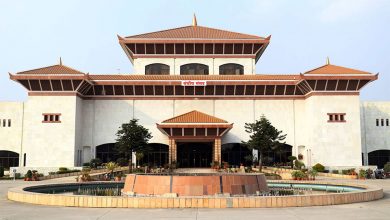

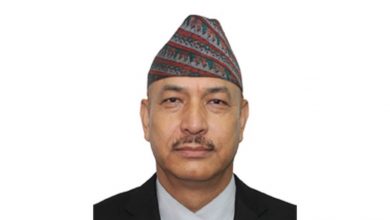
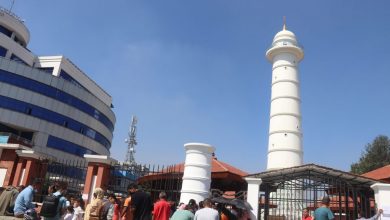
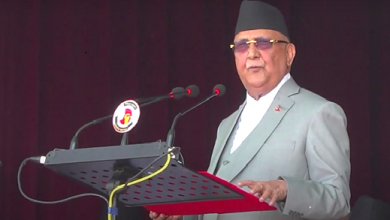
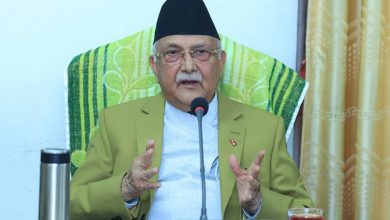
Comments